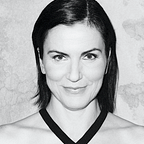How to Flourish When the World Falls Apart
This is the fifth installment of my new newsletter: “The Valley.” To subscribe, click here. You’ll receive a weekly newsletter from me in your email inbox.
When it became clear, back in March, that a California coronavirus lockdown was underway, I sensed this could be an opportunity for me. I had several projects that I wanted to work on, and I realized that the interior isolation imposed by the exterior threat of the virus could create a bubble that would generate productivity.
And generate it did.
Among other things, I revised a podcast series pitch (which is currently being considered by producers), I wrote a nonfiction book proposal (which is currently being considered by editors), and I started writing a television series treatment (which is currently nearly done).
Outside, it was an annus horribilis. (See Wikipedia: “a Latin phrase, meaning ‘horrible year.’”)
Inside, it was an annus mirabilis. (See Wikipedia: “a Latin phrase that means ‘wonderful year,’ ‘miraculous year’ or ‘amazing year.’”)
What was happening? I was more productive, and more skillfully so, and more expeditiously so, than I’d been in … years? Perhaps more honestly: ever.
In my view, it was one part consitution, one part nature, and one part lived experience.
Here’s the path that helped me turn an obstacle into an opportunity.
I’m an INFP
Maybe you’re into the Myers-Briggs Type Indicator, or maybe you’re not. (I take it with a grain of salt.) I’m an INFP. Basically, that means I’m an introvert and intuitive. In other words, if I woke up tomorrow, and I was the last person left on earth, I’d probably be okay and would (hopefully) survive on my instincts. Introverts are drained by social interactions. Extroverts are recharged by social interactions. The utter absence of social interactions due to the coronavirus crisis supercharged my creativity and my productivity. As I joked to a few people: “I was born to do this.”
I had cancer
Eight years ago, I was diagnosed with early-stage breast cancer. I underwent multiple surgeries, three months of chemotherapy, and 30 rounds of radiation. Having cancer means you can’t see the enemy. Is the thing that might kill me still inside of me? How can I fight what I cannot see? What if I think everything is fine, and then it resurfaces in my body and I die? This is an intensely anxiety-inducing and deeply traumatizing state of existence. You are constantly in fight-or-flight mode, and you’re hypervigilant on a near-constant basis. Cancer and the coronavirus share this phenomenon. The threat is everywhere; the threat is nowhere that can be seen. When the coronavirus arrived, the terror it inspired wasn’t new to me. It was familiar. (In case you’re wondering, I’ve been cancer-free for the last eight years.)
I was living in New Orleans when Hurricane Katrina made landfall
In August 2005, I was living in New Orleans when Hurricane Katrina arrived. By the grace of whatever controls the universe, I was able to evacuate the day prior to the storm making landfall. When it became clear that no one was going back to New Orleans anytime soon, I went to live with a friend in Virginia. It was several months before I returned to New Orleans. There, I discovered that part of the roof of the pink shotgun-style house in which I had been living had been peeled off by the Category 5 tropical storm, and a sign on the door indicated that the roof shingles had been made with asbestos. Inside, the ceiling was sitting on the furniture, and the mold was crawling up the walls. When I stood in the main room, I could see the sky. I took what I could, got in my rental car, and headed back to Virginia. At one point, as I drove across the Lake Pontchartrain Causeway, I turned my head and saw that part of the bridge was gone. As I drove through Mississippi, I could see that large portions of the trees had been destroyed for miles and miles and miles. In Virginia, I spent quite a bit of time after that wrestling with PTSD, and I worked as a waitress for several years because my brain was so disordered that I could barely write. What I’d seen in New Orleans — a city decimated, refrigerators standing in the street like tombstones, a boat marooned by the side of the road — was unlike anything I had ever seen in my life. It forced me to face what we all sense but do not want to see: That in an instant, the world as we know it can be utterly transformed, and irrevocably so. The coronavirus has done the same. It has swooped in and changed the world as we know it. We remain in the wreckage, staggering around and trying to figure out what happens next.
Despite the malignancy that grew in my body and what I saw nature do to the Crescent City, I remain something of an optimist. Has that which not killed me made me stronger? Maybe. Or maybe not. Maybe, instead, these things that do not kill us, if we are lucky, refashion us. They remake us into the people we didn’t know we could be.
Subscribe to The Valley by clicking here. It’s free and delivered to your inbox weekly.
About me. To hire me, read this and then email me here. Subscribe to my newsletter. Follow me on Twitter, Instagram, and LinkedIn. Read The Hustler Diaries here.
